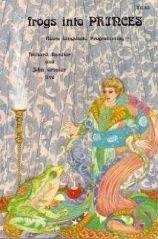Rick Page - Make Winning a Habit [с таблицами]
We realized that—in a social setting — this particular candidate had a hard time getting along with people he considered to be lower on the totem pole. The only way we could find this out was to get him in a situation where his guard was down.
He passed all of the one-hour interviews. He was very good at peer-to-peer relationships. But only in a social setting did we see that he was unable to interact with people lower in the organization than he was.
And in a complex selling environment, you have to be able to get along with everyone.
Practical Intelligence
To be conscious that you are ignorant is a great step to knowledge.
Benjamin DisraeliHoward Gardner, who developed theories on multiple intelligences, says that there are at least seven kinds of smart. Practical intelligence extends beyond the amount of education and training the candidate has. Although knowledge is important, being able to apply it — through mental quickness, political savvy, and common sense — is essential.
Cultural literacy — knowing a little about a lot — is also necessary to be able to communicate with all types of people with varying interests. A critical type of intelligence for salespeople is discernment — the ability to assess multiple complex situations and determine priorities of action. Like the old vaudeville routine, can they keep multiple plates spinning in the air without dropping any?
Several years ago, Carolyn, the wife of one of our principals, Joe Terry, was studying to learn American Sign Language (ASL). One night, Joe was helping her review by calling out words for her to sign. When he called out the word smart, she signed several words. When Joe asked why there were so many signs for this one word, she explained, “In sign language, smart is actually three different words.”
The amount of education or training someone has, or book smarts, is represented by one sign. Street smarts, which indicates that someone has common sense and can build relationships with a wide range of people, is represented by a different sign. And the word wisdom is a third, completely different sign.
Different roles require people to be different kinds of “smart.” A good accountant, for example, needs “book smarts” but doesn’t necessarily need “street smarts” or “wisdom” to be successful. But good salespeople, on the other hand, have to be all three kinds of “smart.” They have to be well trained and educated, be able to read their surroundings and relate to people, and have the wisdom to apply this knowledge to be successful in complex situations.
Perseverance
I remember thinking. about the story of Thomas Edison’s early attempts to come up with the right material for a light bulb. He had tried a thousand different elements, and all had failed. A colleague asked him if he felt his time had been wasted, since he had discovered nothing. “Hardly,” Edison is said to have retorted briskly. “I have discovered a thousand things that don’t work.”
Robert E. Kelley, How To Be a Star at WorkSuccessful people don’t run from challenges — they redouble their efforts. If the door is closed, they find another door. Does the candidate have the ability to stay the course despite unexpected obstacles? What obstacles have they overcome in the past? If they haven’t had any failure to date, how will you know how they will respond when they inevitably experience some?
The challenge here is that perseverance can actually work against successful salespeople in the area of qualification. No one wants to be seen as a quitter, but the best practice for individual salespeople is to choose the right battles and to qualify out of lost causes early. The question is, “Do you have a defined set of criteria for knowing when to hold ’em and when to fold ’em?”
A useful exercise that we use in our management classes is to take each of the 10 P’s and rate your top three performers and your bottom three performers in a job category to see the relative importance of each attribute to that specific job.
Start Performance Management in the Interview
How long does it take to do a performance review? The answer is six months to a year because the first step in managing performance is to set the standards, values, tolerances, and expectations. You should give your candidates the performance review form and set their expectations as part of the interview process.
New hires are like wet cement. You can mold them and shape them early, but as time passes, habits form — both good and bad. After 90 days or so, their attitudes begin to calcify to the point where it may take a jackhammer to change their bad habits.
But how is the performance review actually handled in most cases? Performance reviews are seen as a necessary evil from HR, often written by HR, and often don’t include the behaviors, skills, and competencies needed to perform the adopted sales methodology. They are often seen as just checkboxes to get the HR people off your back.
If the performance review doesn’t include the sales methodology, then perhaps it should be ignored. However, if performance management is driven by the ideal sales cycle, it can be a very constructive performance coaching tool that actually should be reviewed on a quarterly basis rather than annually. This allows sales managers to coach not just deal competence, but the other factors of overall performance such as character, chemistry, competence, commitment, communication, and cognitive skills.
The time to start this process is in the interview itself, where expectations about how you want things done in your organization can be set early.
Talent Scorecard Best Practice, Talent Importance Execution Degree of Importance (1 = low, 10 = high) Agree but we never do this We sometimes do this We often do this We do this consistently Individual We have written, tested profiles for each sales position. We have questions, assessments, and an interview process that produce consistent performers. We generally have the sales talent in the right roles. We have sales performance reviews that include our sales methodology and are introduced during the interview process. New managers are trained how to hire effectively. We have a training curriculum, built on our best practices, that includes skills, opportunity strategies, and account management. Opportunity Management We have junior salespeople ready for territories when they open up. We have a pool of candidates in our industry on which we can draw when we have an opening. We have full-time internal recruiters. We have a high win ratio in head-to-head competitions. Account Management Our customer service people consider themselves part of the account sales team. We have sales reps and managers who have earned trusted advisor status with their clients. Industry/Market We have industry knowledgeable sales consultants available to our sales team. We are recognized thought leaders by the customers in our industry.SECTION III: Technique


